
Yanka Kupala
State University of Grodno
Super User
A graduate of Humanitarian College of Yanka Kupala State University of Grodno became the bronze medalist of the distributed Eurasian championship according to World Skills 2021 standards
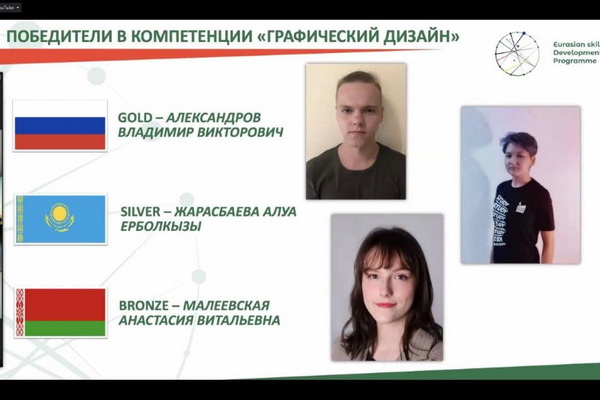
According to the results of the competition among young professionals from the countries of the Eurasian space, Anastasia Maleevskaya took the 3rd place in the category "Graphic Design".
Anastasia Maleevskaya represented Humanitarian College of Yanka Kupala State University of Grodno at the championship, which she successfully graduated from in 2020. Its head and expert of the championship was Elena Prokopchik-Bialiatskaya.
The distributed Eurasian Championship according to World Skills 2021 standards was held in preparation for the world competitions, which are planned to be held in Shanghai.
First Vice-Rector of Yanka Kupala State University of Grodno

Yury Ramanouski, Vice-Rector for Science, was appointed to the position of First Vice-Rector.
The applicant's user account is the first step towards admission to Yanka Kupala State University of Grodno

For more than one year, the Admissions Committee at the Yanka Kupala State University of Grodno has been working not only offline, but also online.
Within the framework of the Online Admissions Committee, Yanka Kupala State University of Grodno invites each applicant to create an applicant's user account, which contains all the information about the process of submitting documents, participation in the call, the results of passing the admission tests, the time and place of various coordination meetings.
Employees and students of Yanka Kupala State University of Grodno took part in the XXX International Festival of Arts "Slavianski Bazaar in Vitebsk"
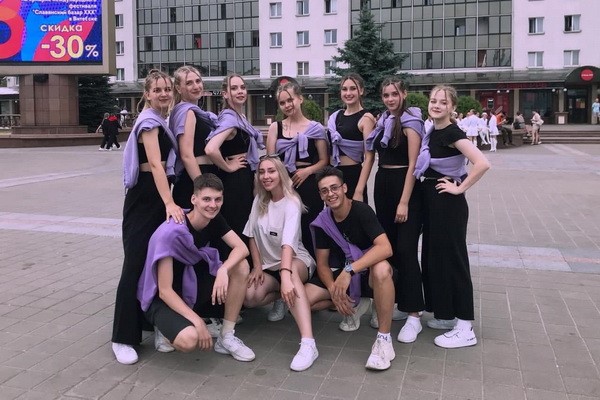
Employees and students of Yanka Kupala State University of Grodno became participants in the Days of Youth, demonstrated their professional skills and talent in a dance competition.
Yanka Kupala State University of Grodno has set up information stands in Grodno about Eliza Orzeszkowa’s life and work
Ten tourist information stands have been set up in those parts of the city that are related to different moments of famous writer’s life.
Tourist stands about Eliza Orzeszkowa in Grodno were prepared and installed by Yanka Kupala State University of Grodno within the framework of the international cross-border project «Preservation of Eliza Orzeszkowa’s and Liudwik Zamenhof’s historical and cultural heritage in Grodno and Bialystok» under Cross-border Cooperation Programme Poland-Belarus-Ukraine 2014–2020. Their preparation and installation was agreed with Grodno City Executive Committee.
#BelarusYouthUnity. Participants of the Republican Youth Train visited Yanka Kupala State University of Grodno
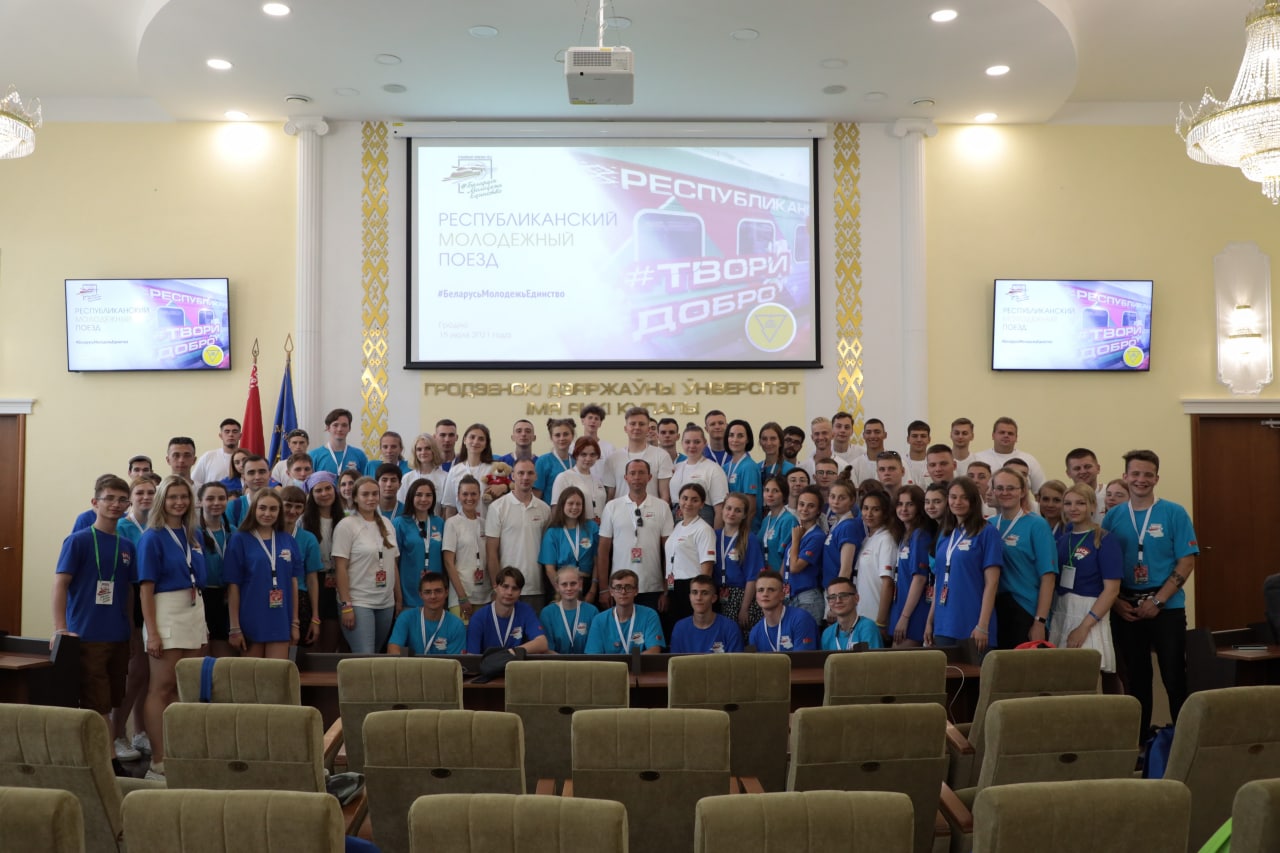
Grodno region and Kupala University became the starting point of a large route with the participation of the best Belarusian youth.
On July 15, in the youth capital of Belarus - the city of Grodno - a large-scale project "Republican youth train #BelarusYouthUnity" was launched. The visit to Grodno region began with a visit to the Grodno Zoological Park, where the youth landscaped the alley laid by the participants of the Republican youth train #BelarusMoladzNatkhnenne in 2020 and planted new trees.
131 people were enrolled in the master's program of Kupala University on a paid basis in 2021
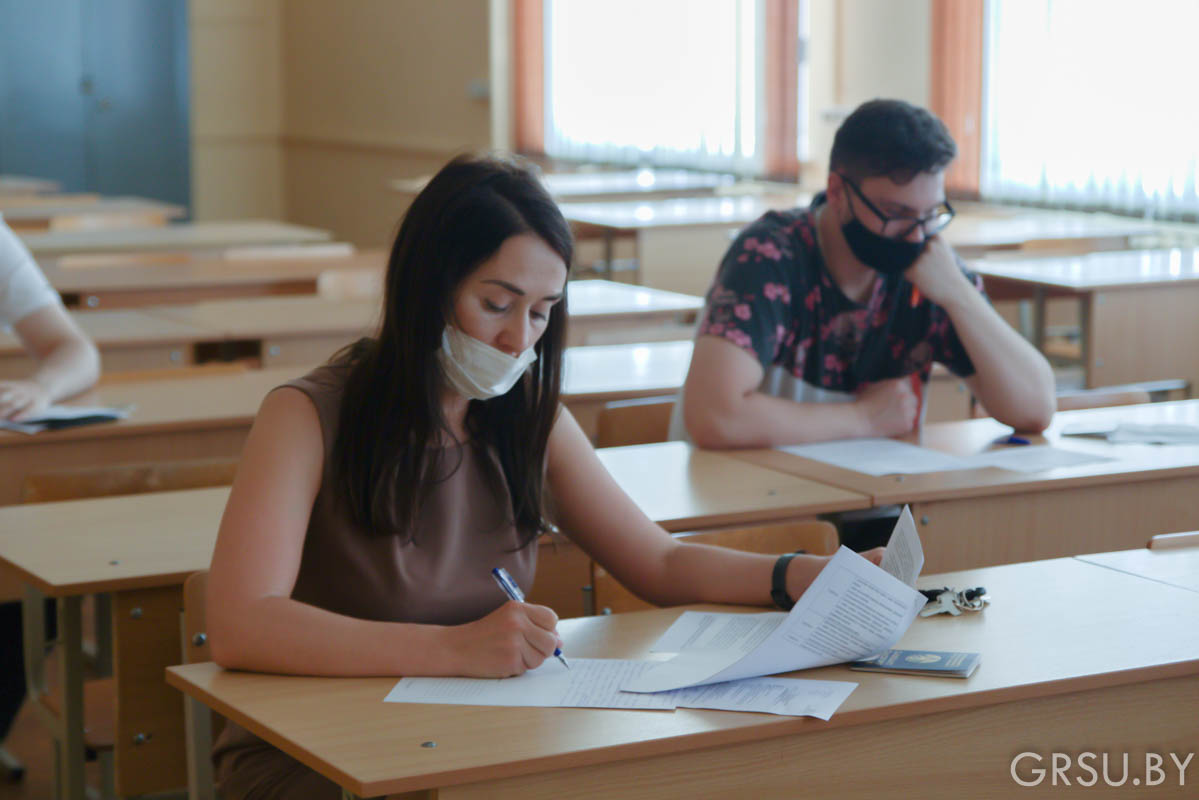
Currently, 131 people are enrolled in the master's program of Kupala University on a paid basis, of which 57 are for full-time education, and 74 are for part-time.
A total of 287 people were enrolled in the number of students of the II stage of higher education, full-time and part-time forms of education at Yanka Kupala State University in 2021.
The project "Development of a mobile educational portal" will be implemented at Yanka Kupala State University of Grodno
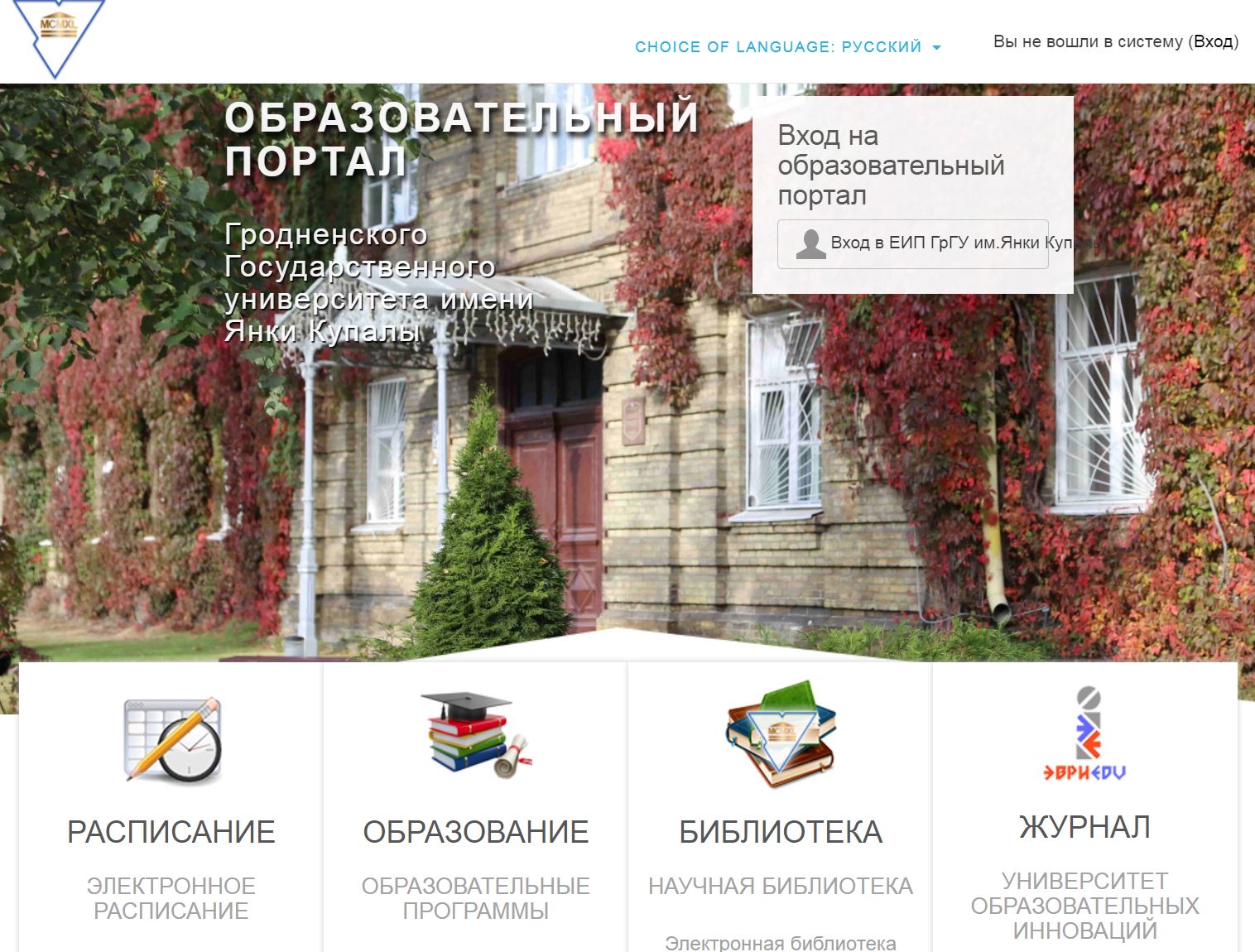
The work on the project is carried out by a group of students from Yanka Kupala State University of Grodno.
The project "Development of a mobile educational portal" won the competition for the provision of grants for the implementation of research and innovation projects in 2021. The author of the project is a student team under the scientific guidance of Andrei Urbanovich, senior lecturer of the Department of System Programming and Computer Security. The project will also involve a resident of the Science and Technology Park of Yanka Kupala State University of Grodno, private unitary enterprise "Romanets Enterprises", created by a student of the University. The result of the project will be the creation of a mobile personal account. The project is financed from the Yanka Kupala State University of Grodno Fund for Innovative Development.
Teachers of Yanka Kupala State University of Grodno completed the International Online-Internship "Chemistry and Physics" at Mannheim University of Applied Sciences (Germany) within the project «EU best practices-based education in Radiation Protection and Nuclear Safety Culture for the Belarusian Academia» RADIUM
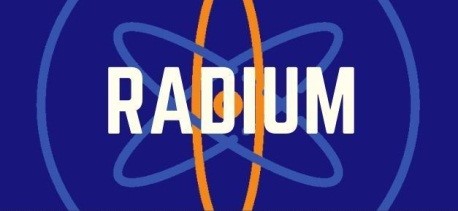
The final seminar on the implementation of a local environmental initiative «URA Grodno!» was held at the Faculty of Biology and Ecology
The meeting took place on 7 July and completed the implementation of a project funded by the European Union.
The outcomes of the environmental initiative «URA Grodno!» were summed up at Yanka Kupala State University of Grodno: «Inclusive environmental management by inclusion of Grodno resident in the development and implementation of measures aimed at improving the quality of the environment and monitoring environmental risks in an educational multi-center of integrated support for the environmentally friendly lifestyle of local communities «URA Grodno!» (Sustainable development - activity of Grodno).







































